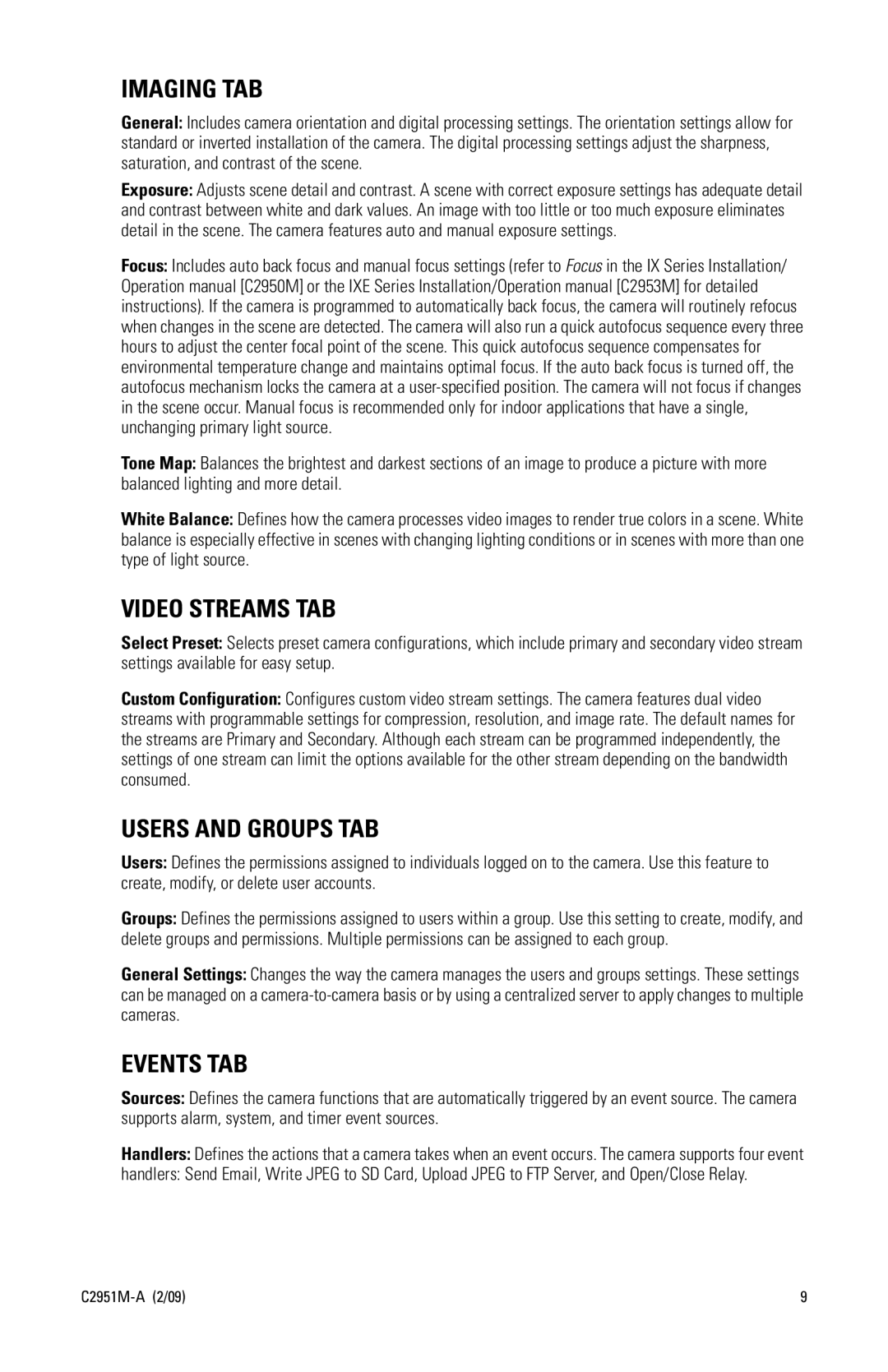IMAGING TAB
General: Includes camera orientation and digital processing settings. The orientation settings allow for standard or inverted installation of the camera. The digital processing settings adjust the sharpness, saturation, and contrast of the scene.
Exposure: Adjusts scene detail and contrast. A scene with correct exposure settings has adequate detail and contrast between white and dark values. An image with too little or too much exposure eliminates detail in the scene. The camera features auto and manual exposure settings.
Focus: Includes auto back focus and manual focus settings (refer to Focus in the IX Series Installation/ Operation manual [C2950M] or the IXE Series Installation/Operation manual [C2953M] for detailed instructions). If the camera is programmed to automatically back focus, the camera will routinely refocus when changes in the scene are detected. The camera will also run a quick autofocus sequence every three hours to adjust the center focal point of the scene. This quick autofocus sequence compensates for environmental temperature change and maintains optimal focus. If the auto back focus is turned off, the autofocus mechanism locks the camera at a
Tone Map: Balances the brightest and darkest sections of an image to produce a picture with more balanced lighting and more detail.
White Balance: Defines how the camera processes video images to render true colors in a scene. White balance is especially effective in scenes with changing lighting conditions or in scenes with more than one type of light source.
VIDEO STREAMS TAB
Select Preset: Selects preset camera configurations, which include primary and secondary video stream settings available for easy setup.
Custom Configuration: Configures custom video stream settings. The camera features dual video streams with programmable settings for compression, resolution, and image rate. The default names for the streams are Primary and Secondary. Although each stream can be programmed independently, the settings of one stream can limit the options available for the other stream depending on the bandwidth consumed.
USERS AND GROUPS TAB
Users: Defines the permissions assigned to individuals logged on to the camera. Use this feature to create, modify, or delete user accounts.
Groups: Defines the permissions assigned to users within a group. Use this setting to create, modify, and delete groups and permissions. Multiple permissions can be assigned to each group.
General Settings: Changes the way the camera manages the users and groups settings. These settings can be managed on a
EVENTS TAB
Sources: Defines the camera functions that are automatically triggered by an event source. The camera supports alarm, system, and timer event sources.
Handlers: Defines the actions that a camera takes when an event occurs. The camera supports four event
handlers: Send Email, Write JPEG to SD Card, Upload JPEG to FTP Server, and Open/Close Relay.
| 9 |
